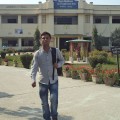 Dear teachers, educators and learners,
Dear teachers, educators and learners,
Learning is a lifelong process. Even a person at the end of his or her life says, ‘Had I done that…’. The philosophy of education and teaching profession keeps changing in the course of time. The traditional meaning of teacher has been modified as soon as the technologies emerged into the social life. The new digital technologies in daily life have transformed the socio-cultural aspects, educational norms and learning strategies. It has mounted the responsibilities of teachers, institutions and community to understand the fast-changing society and move with the time. At the same time, smart technology has already been accepted as a part of daily life. With the advantages of using smart technology, the technological environment has also generated challenges for the teachers, schools and communities.
Social mobility, migration and transformation of values and norms have consistently engendered various innovations, options and obligations in daily life. Such movements develop some aspects of the society as well as endanger some identities of the human beings. Among the several identities of different communities, language is one of them. There are still over 6500 languages surviving in the world although most of them are limited to verbal form only. After the World War II, the rapid social mobilisation brought several changes in social life. The development of computer technology emerged into our daily life. It increased industrialisation, international business, globalisation of education. The developments created such an environment where the world had to redefine ‘education’ as per the social needs and changes. The national institutions in different countries were renamed as International; these international institutions followed the way of world trade organisation. Education then has been driven by business motive rather than social transformation. Consistently industrialisation dominated socialisation and demanded socialisation according to industrialisation.
When we review last two decades of global change, industrialisation has led socialisation. Industrialisation of natural resources, human resource, technology, ideology and education has changed the way of socialising in the modern world. No nation can survive independently in the world today. It has been imperative for every country to share products, skills and bills. The powerful nations accelerated industrialisation and internationalised their products. The internationalisation of every product in a country demanded link language to communicate with each other. The underdeveloped and developing countries as consumers of multi-national products had to learn the language of industrialised nations. For instance, English, French, German, Japanese, Spanish, Russian and Chinese languages have been international languages due to their industrial development. Whereas, thousands of other languages are in the line of extinction. Technological development has much deterred the use of other languages existing in different communities in the world. Over 2000 languages with less than 1000 speakers are going to extinct soon whereas other several languages are dying gradually.
With the development of Web 2.0 technology in the new millennium, the world has been much controlled by the English language. The recent online information states that the English language has occupied over 90 percent digital information world. It is evident that the English language has been an international language and official language of many countries. The internationalisation of English language has been dominating other languages in the world.
The acceptance of information and communication technologies (ICTs) in education has much accelerated in the development of English language in the non-native ground of English language. This issue of https://eltchoutari.com/ presents various experiences of English language teachers from different countries in South-East Asia, Middle-East Asia and West Africa. It shares English teachers’ ICT practice in English language teaching and learning in various contexts. Teachers from India, Bangladesh, Pakistan, Vietnam, Jordan and Ghana have also written about ICTs in English language teaching and learning in their contexts. Their contribution along with the English teachers from Nepal has made this issue a more reflective and hopefully productive.
Jeevan Karki, one of the editorial team members of this digital portal, has highlighted how the teachers can integrate mobile phones into English language teaching-learning activities and also shares the practices of English language teachers of remote schools of Nepal. In another post, Dr. Kofi Ayebi from Ghana has described the strategy of ICT integration in education from primary to tertiary level. He highlights ICT in primary school education as a fundamental course to prepare the children for higher level school. The government of Ghana has executed ICT in education policy at all levels with the aim of developing the skilled human resource to meet the requirement of the industry. Ghana equally emphasises the English language in institutions and official purpose.
SM Akramul Kabir from Bangladesh describes the situation of ICT use in schools in Bangladesh. He points out the challenges of implementing ICT in education policy in teaching and learning where there is a lack of skilled teachers and technology support. Although there are schools in Bangladesh trying various forms of ICTs in instructional activities, he says that insufficient IT support for the academic institutions across the country, lack of high-speed internet connection, and frequent power cut problem in rural and suburban areas are major issues to be fixed to execute ICT in education policy successfully.
Ambadatta Joshi from Nepal who has been teaching English in a primary school with digital devices (Laptop) reflects his lifelong learning. His schooling with Dhulauto (a wooden flake with dust on it) to teaching with digital technology can be an inspiring story for many teachers and learners in the world.
Upendra Ghimire in another post suggests some advantages of mobile in English language learning. Thinh Le from Vietnam explicates that his practice of online tools resulted in good after a long online teaching and learning activities. His experiential writing may encourage many school teachers and learners to use digital tools such as Skype, Moodle, Zoom, Facebook or other tools to communicate with each other, discuss lessons and share ideas from distance virtual environment.
Similarly, Muneir Gwasmeh from Jordan shares his English language teaching experience in Jordanian and Abu Dhabi schools using audio technologies. He considers that digital technologies provide the second language learners with an opportunity of learning the language in the absence of teachers or even what the teachers missed. Haprpinder Kaur from India explicates that how a school teacher came to learn the correct English pronunciation with the support of smartboard in the classroom. Her reflective writing may insist the non-native English teachers teaching English in the exotic ground to rethink about their English language teaching. It also suggests that the teachers have to learn to use digital technologies to upgrade their knowledge and skills. Similarly, Shaista Rasheed from Pakistan suggests the teachers use online tools to teach English as well as other subjects. Her experience of using Google group in English language teaching can be a good example for English language teachers.
In this connection, Choutari editor Ashok Raj Khati has talked to Dr. Balkrishna Sharma, Praveen Kumar Yadav and Dr. Shyam Sharma to reflect back the seven years journey of ELT Choutari. In the same line, one of our regular readers, Narendra Singh Dhami, explains on how he exploits this forum for his day-to-day teaching.
Here is the list of the hyperlinked posts included for this issue:
- Avenues of Mobile Phones in ELT- Practices of Remote Schools in Nepal, by Jeevan Karki
- ICT/Digital technology in Ghana, by Dr Kofi Ayebi
- ICT in Bangladesh: A potential tool to promote language education, by SM Akramul Kabir
- My experience using digital technology in primary school, by Ambadatta Joshi
- ICT in English Language Teaching and Learning: South-East Asia, by Upendra Ghimire and Thinh Le
- ICT in English language teaching and learning in South to Middle-East Asia. by Muneir Gwasmeh, Haprpinder Kaur and Shaista Rasheed
- ELT Choutari Journey of Seven Years: Reflections
Finally, the thanks go to the contributors who have given their invaluable time to share their experiences, ideas and researches. At the same time, the team of Choutari who have constantly been putting their efforts to develop this platform equally deserves credits. To bring out the special issue, I am also grateful to the members of the editorial team, Ashok Raj Khati, Jeevan Karki and Praveen Kumar Yadav for their editorial and technical supports.
Thank you.

Editor of the Issue
Mr. Rana is a PhD Candidate in the School of Teacher Education, College of Education, Health and Human Development, University of Canterbury, Christchurch, New Zealand.
 I would like to comment mainly on two points when reflecting back the Choutari’s seven years. First, Choutari has been able to groom a new generation of scholars capable of writing on topics they have read about in others contexts or learned in their university classrooms. We did not have a stronger tradition of academic writing in TESOL and applied linguistics in the context of Nepal in the past. The Journal of NELTA was there, but young Nepali scholars did not consider themselves qualified enough to write for the journal. I had a similar view when I completed my M. Ed. In 2003. There still is a popular assumption that only experienced ‘scholars’ write for the journal, and the younger scholars are positioned in the receiving end of the journal readership. Since the starting of this webzine, this assumption has been questioned, renegotiated and redefined. I can see a whole lot of new scholars turning themselves into academic writers with greater confidence, refined skills, and thoughtful pedagogical tips. Second, the traditional mode of printing and publication in Nepal reached only to a small group of readers, usually with a long time gap. Consider, for example, the NELTA journal we have. It includes a collection of homegrown scholarship, but we have to wait for one year to read about ten or so articles. Webzine like the ELT Choutari has again challenged the tradition, expanding its reach to a wider audience, with a large number of readable articles. This again has promoted a new generation of writers and readers, who necessarily are not the university professors.
I would like to comment mainly on two points when reflecting back the Choutari’s seven years. First, Choutari has been able to groom a new generation of scholars capable of writing on topics they have read about in others contexts or learned in their university classrooms. We did not have a stronger tradition of academic writing in TESOL and applied linguistics in the context of Nepal in the past. The Journal of NELTA was there, but young Nepali scholars did not consider themselves qualified enough to write for the journal. I had a similar view when I completed my M. Ed. In 2003. There still is a popular assumption that only experienced ‘scholars’ write for the journal, and the younger scholars are positioned in the receiving end of the journal readership. Since the starting of this webzine, this assumption has been questioned, renegotiated and redefined. I can see a whole lot of new scholars turning themselves into academic writers with greater confidence, refined skills, and thoughtful pedagogical tips. Second, the traditional mode of printing and publication in Nepal reached only to a small group of readers, usually with a long time gap. Consider, for example, the NELTA journal we have. It includes a collection of homegrown scholarship, but we have to wait for one year to read about ten or so articles. Webzine like the ELT Choutari has again challenged the tradition, expanding its reach to a wider audience, with a large number of readable articles. This again has promoted a new generation of writers and readers, who necessarily are not the university professors.
 As ELT Choutari enters into 8th year, we would like to thank our valued contributors and readers for their continued support. The ELT journey without their support was never possible to accomplish seven years. The ELT Choutari today has won acclaim for its commitment to contributing to discourses focused on various issues related to English Language Teaching and Education.
As ELT Choutari enters into 8th year, we would like to thank our valued contributors and readers for their continued support. The ELT journey without their support was never possible to accomplish seven years. The ELT Choutari today has won acclaim for its commitment to contributing to discourses focused on various issues related to English Language Teaching and Education. I think Choutari has made unique contributions to Nepali ELT discourse. The community had a great journal, and we also had an active listserv; but we wanted to provide colleagues a place to share ideas that was more public/open and interactive, where especially younger colleagues could contribute their ideas and experiences and run conversations. Many scholars who chose to run this blogzine also had the opportunity to practice publication and leadership skills while serving the profession. This publication has slowed down a little bit, but I am confident that new scholars will take the baton forward. In fact, I also hope that more venues like this will emerge and make new kinds of contributions to the field of ELT in Nepal.
I think Choutari has made unique contributions to Nepali ELT discourse. The community had a great journal, and we also had an active listserv; but we wanted to provide colleagues a place to share ideas that was more public/open and interactive, where especially younger colleagues could contribute their ideas and experiences and run conversations. Many scholars who chose to run this blogzine also had the opportunity to practice publication and leadership skills while serving the profession. This publication has slowed down a little bit, but I am confident that new scholars will take the baton forward. In fact, I also hope that more venues like this will emerge and make new kinds of contributions to the field of ELT in Nepal.